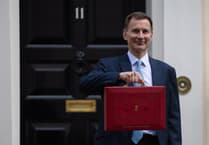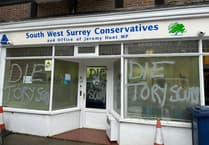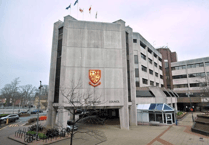Vulnerable people are set to bear the brunt of service charge rises after Woking Borough Council’s executive committee agreed to inflation-busting increases.
People who receive community meals or extra care facilities will be asked to pay more, as will users of community alarms. The day-care services, which were previously free and run from The Vyne and St Mary’s Community Centre, are to be moved to Brockhill and Hale End Court and cost £20 a day.
The daycare charge would not include the cost of transportation, which is currently undertaken by Woking Community Transport, itself under threat given its loss of funding.
The hit is being forced on residents after WBC declared itself effectively bankrupt in June this year, with an unpayable deficit of about £1.2 billion and debt set to soar to £2.6bn. It meant all services the council was not legally obliged to provide would have to pay for themselves.
Other increases recommended for approval included garden waste fees rising by almost 50 per cent to £70 per bin, and community hall fees jumping by 20 per cent.
Decisions on big ticket items, such as Pool in the Park and parking charges, are still to come as the council awaits consultation results and are not expected until the new year. Introducing the measures to the meeting last Thursday was Councillor Dale Roberts, portfolio holder for financial planning.
He described service charges as “a bit of a political football but this is also not like any other year”.
He said: “This must be done while reducing, removing, the subsidy from discretionary services, effectively delivering them cost neutral such that they are affordable, sustainable to this council.”
Leader of the council, Councillor Ann-Marie Barker, said: “These are non-statutory services, they are services the government doesn’t require us to provide. We provide them because they are good and useful services to residents but if we want to continue to provide them we’ve got to cover the costs, we’ve got to make them cost neutral. But affordability has to be a key measure as well because we may be impacting people who can’t afford to pay them.
“It’s not easy but it’s symptomatic of the situation we find ourselves in. Opposition members raised flags over the lack of detail in the papers, stating it made approving blanket increases difficult as there was no way to know the extent that they were needed.
“This was agreed by the executive, who said the problem was deep-rooted and part of the council’s long-term problems.”
Cllr Roberts said that officers have worked very hard but that he recognised “that there is missing information, things we would all like, that are just not there.”
He said: “Councils don’t fail because they get into financial difficulty, they get into financial difficulty because they failed. The fact that we are absent some of the information we absolutely need, critical to moving forward, is because this council has failed, it’s broken.”




